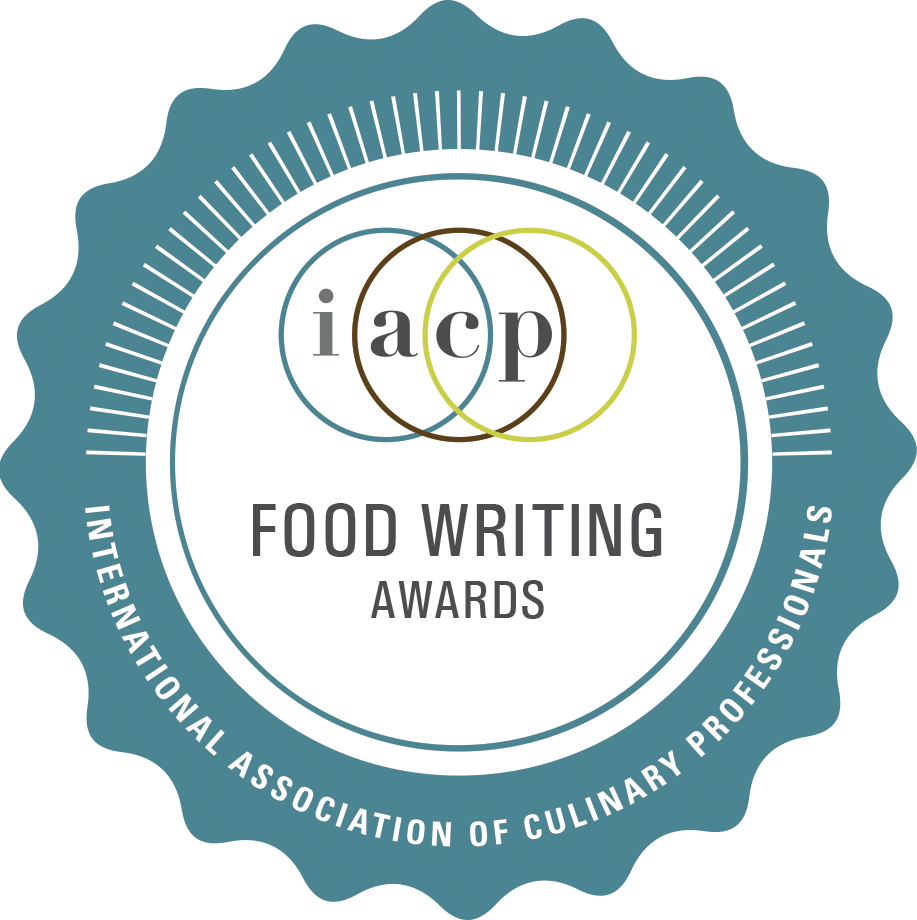Food Writing Awards
The Food Writing Awards honor the best examples of food writing across nine categories, whether published in print or online. This awards program is open to both IACP members and non-members.
The Food Writing Awards were first presented in 1991 to honor excellence in food journalism. The awards were formerly named after Bert Greene (1923-1988), a nationally renowned cooking teacher, cookbook author, and syndicated food columnist. Each year, the Food Writing Awards Committee selects the best examples of food writing in any of the nine (9) categories. Entries are judged against a detailed list of criteria unique to each category. Eligible works must have been published between January 1, 2023 through December 31, 2023. For more information about the Food Writing Awards submission guidelines, judging procedures or FAQ’s, please review the links at the bottom of the page. Entries open January 11, 2024 and end April 4, 2024. Deadline to receive all entry forms and payments through the IACP Submittable Page is April 4, 2024. Here are the categories:
Beverage-Focused Column
This award seeks to recognize author(s) who write on beverages (wine, beer, cocktails, other), in a designated “column” or structured repetitive format. Entries will be judged on mastery of language, clarity of thought, explanatory writing and ability to engage and maintain a consistent tone and relationship with the reader. Entrants must submit a minimum of three columns; may have more than one contributing author.
Recipe-Focused Column
This award seeks to recognize author(s) who write on recipes in a designated “column” or structured repetitive format. Entries will be judged on mastery of language, quality and originality of recipes, clarity of thought, explanatory writing and ability to engage and maintain a consistent tone and relationship with the reader. Entrants must submit a minimum of three columns; may have more than one contributing author.
Culinary Travel Writing With Recipes
A culinary-related story, with recipes, which documents a gastronomic/travel experience, based on a physical, intellectual, or emotional journey. Entries are judged on mastery of language, originality, depth of thought and research, clarity and coherence of ideas, resonance with the reader, originality, and focus.
Culinary Travel Writing Without Recipes
A culinary-related story, without recipes, which documents a gastronomic/travel experience, based on a physical, intellectual, or emotional journey. Entries are judged on mastery of language, originality, depth of thought and research, clarity and coherence of ideas, resonance with the reader, originality, and focus.
Narrative Beverage Writing (UPDATED)
The entries are judged on mastery of language, depth of thought and research, clarity and coherence of ideas, resonance with the reader, originality, and focus. Entries may or may not include recipes. The narrative should help the reader to conceptualize distinctive aspects of the topic under discussion, such as unique ingredients and/or techniques.
Narrative Food Writing With Recipes
The entries are judged on mastery of language, depth of thought and research, clarity and coherence of ideas, resonance with the reader, originality, and focus. Recipes are required in this category. Recipes should add an extra dimension, helping the reader to conceptualize unique ingredients and/or cooking techniques related to the topic.
Narrative Food Writing Without Recipes
The entries are judged on mastery of language, depth of thought and research, clarity and coherence of ideas, resonance with the reader, originality, and focus. Recipes are not required in this category, but the narrative should help the reader to conceptualize distinctive aspects of the topic under discussion, such as unique ingredients and/or techniques.
Personal Essay/Memoir
An article of a personal nature that shows a development of thought or perspective that the author ties with a culinary subject, memory, episode or issue. Entries will be judged on a demonstrated mastery of language, clarity of thought, originality persuasive explanatory writing, ability to engage the reader on an emotional level and original focus on the subject at hand.
FOOD WRITING AWARDS: LINKS
FOR MORE INFORMATION CONTACT
awards@iacp.com

